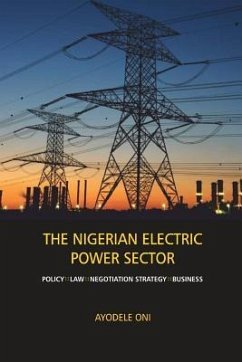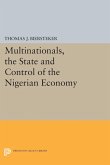This book consisting of 10 chapters review the general legal and regulatory regime of the Nigerian electric power sector. It takes a comprehensive look at the power sector from a historical perspective and looks at where Nigeria is, in terms of the legal and regulatory regime, and the direction in which the country may be headed. Of particular interest to power sector professionals and other persons who negotiate projects is the chapter which serves as a guide on negotiating key power sector contacts, such as Power Purchase Agreements, Gas Supply Agreements and Engineering, Procurement & Construction Contracts. Noteworthy is the fact that the book contains contributions from internationally recognized energy law and policy experts such as Stella Duru of Banwo & Ighodalo, Jacson Kerr of White & Case, Arun Velusami of Norton Rose and Akshao Fofaria of Pinsent Masons. Further, the book considers other issues in the power sector such as the World Bank Partial Risk Guarantee, which backstops the Federal Government of Nigeria's payment obligations to power sector as set out in the Multi Year Tariff Order. Additionally, the book looks at issues in financing power projects and in particular, examines the applicable laws and the challenges that have been observed from the experiences of the author and the contributors in connection with advising on financing power projects. The book also contains general negotiation techniques for lenders and borrowers. For investors, both local and foreign, the book provides a guide to engaging in electric power business in Nigeria; the book also provides information on how foreign investors can protect themselves by internationalizing their investments agreements and highlights the advantages of ensuring that investments fall within the precincts of bilateral investments treaties. Finally, it advises investors on how they can benefit under Nigeria's principal investment code: the Nigerian Investment Promotion Commission Act.
Hinweis: Dieser Artikel kann nur an eine deutsche Lieferadresse ausgeliefert werden.
Hinweis: Dieser Artikel kann nur an eine deutsche Lieferadresse ausgeliefert werden.








